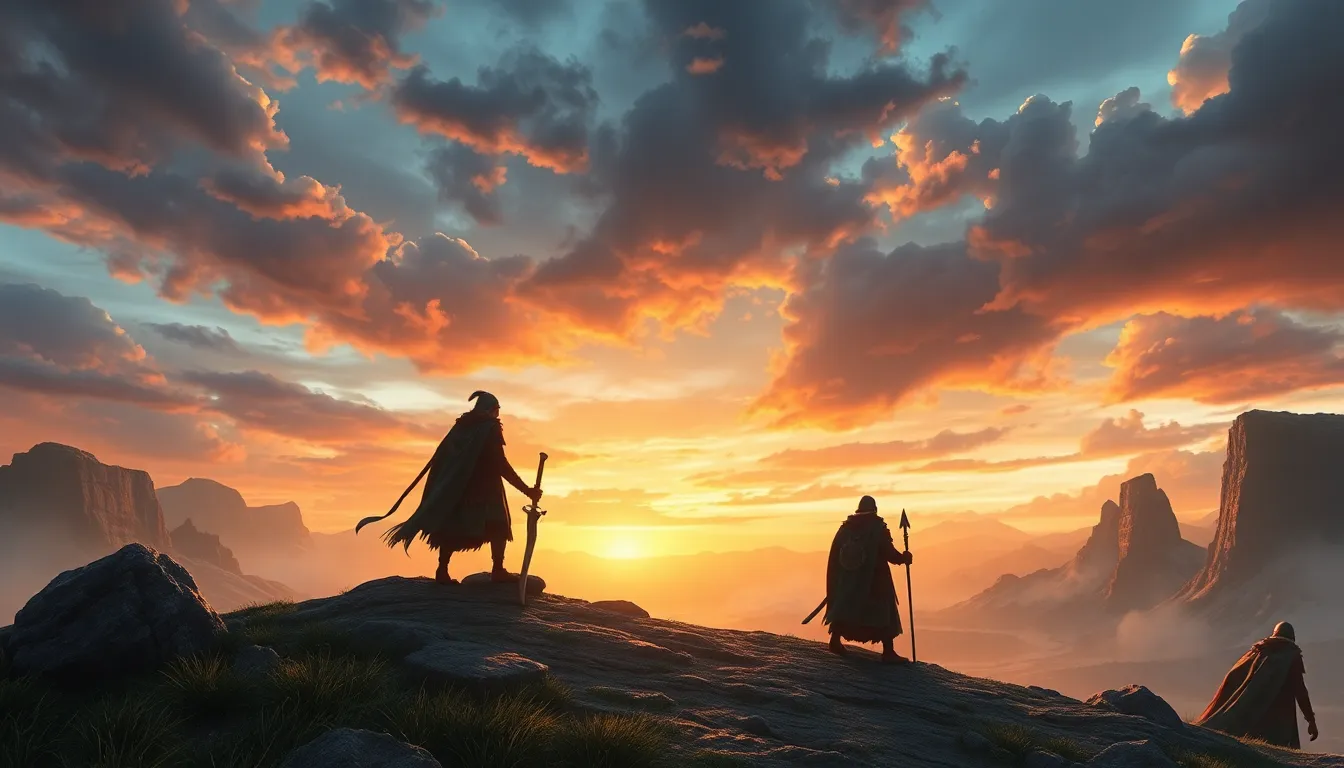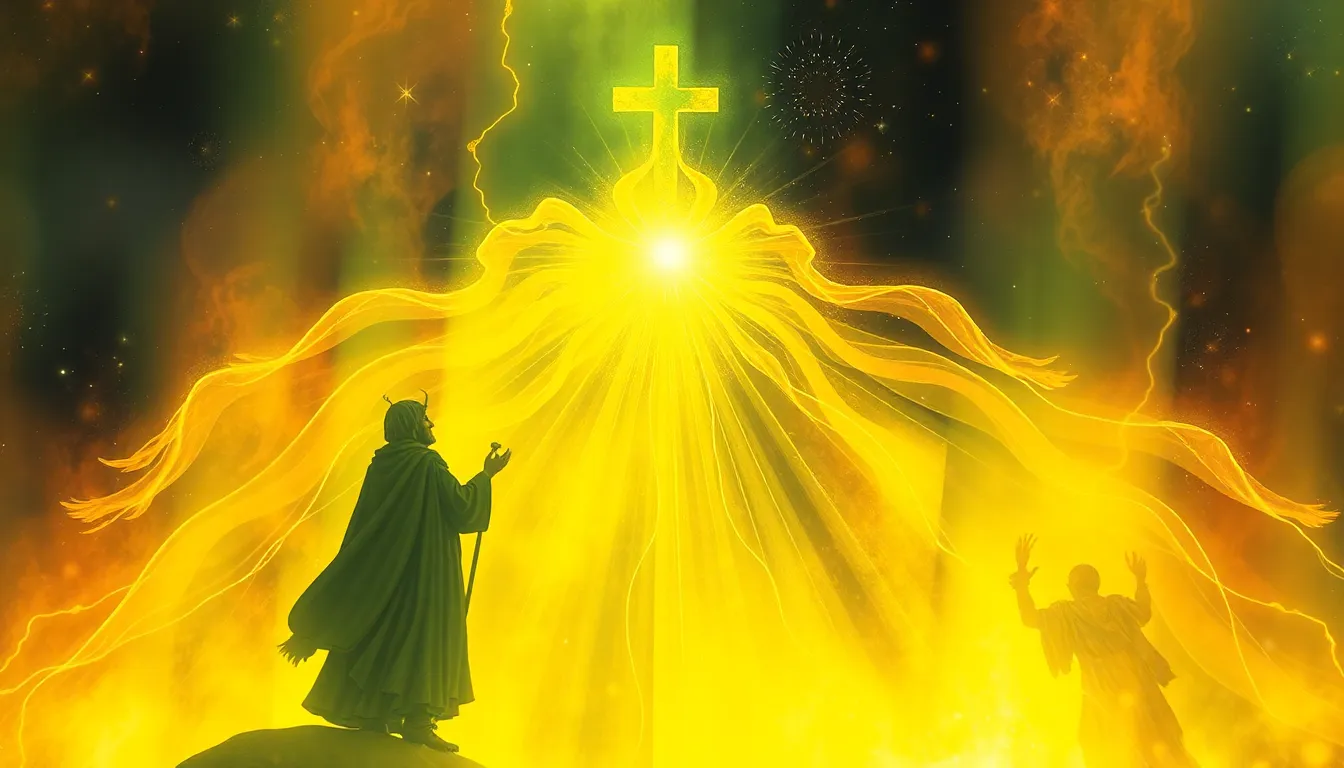The Quest for the Lost Civilization: Legends of the Ancients
I. Introduction
Lost civilizations are societies that have disappeared or been forgotten, leaving behind only remnants of their existence. These civilizations often spark the imagination, serving as a canvas for legends that have been woven throughout history. The allure of these ancient tales captivates our collective consciousness, prompting us to explore the mysteries of our past. This article aims to delve into various lost civilizations and the legends that surround them, examining their significance and the impact they have on our understanding of history.
II. The Allure of Lost Civilizations
The fascination with lost civilizations stems from several psychological and cultural reasons. Humans are inherently curious, and the idea of a once-thriving society that has vanished invites exploration and speculation.
- Psychological Curiosity: The mystery surrounding lost civilizations triggers our innate desire to uncover the unknown.
- Cultural Reflection: These stories often serve as mirrors reflecting our values, fears, and aspirations.
Furthermore, lost civilizations have significantly influenced modern culture and media. They appear in various forms of literature and film, captivating audiences with their intriguing narratives. Examples include:
- Atlantis
- Indiana Jones and the Last Crusade
- Apocalypto
III. The Myths and Legends of Atlantis
The myth of Atlantis originates from the writings of the ancient Greek philosopher Plato, who described it as a powerful and advanced civilization that ultimately succumbed to its hubris and disappeared beneath the ocean. This tale has spawned numerous theories regarding its possible location, with suggestions ranging from the Mediterranean Sea to Antarctica.
Modern interpretations of the Atlantis legend have permeated popular culture, leading to a plethora of books, movies, and even video games that explore its themes. The idea of a utopian society destroyed by moral failings resonates with contemporary audiences, allowing for a reflection on current societal issues.
IV. The Mysterious Civilization of Mu
Another captivating lost civilization is Mu, often associated with the concept of Lemuria, a hypothetical landmass believed to have existed in the Pacific Ocean. Proponents of the Mu legend claim it was home to an advanced society that possessed incredible knowledge and technology.
Legends surrounding Mu depict it as a peaceful and prosperous civilization that ultimately fell victim to natural disasters. The study of Mu has played a significant role in the exploration of ancient civilizations, inspiring both archaeological pursuits and spiritual movements.
V. The Enigmatic City of El Dorado
The legend of El Dorado, often referred to as the “City of Gold,” has its origins in the tales of indigenous peoples in South America. Initially, it described a king who covered himself in gold dust and performed rituals in a lake, which eventually transformed into quests for a city overflowing with riches.
Exploration and quests for El Dorado led many adventurers into the treacherous jungles of South America, often with dire consequences. The myth of El Dorado significantly impacted indigenous cultures, as it fueled European colonization efforts and the exploitation of native populations.
VI. The Lost Kingdom of Atlantis: The Mayans
The Mayan civilization, known for its remarkable achievements in astronomy, mathematics, and architecture, is often linked to the concept of lost kingdoms. The decline of this civilization has led to numerous myths surrounding lost Mayan cities, such as Tikal and Chichen Itza, which were once bustling urban centers.
Recent archaeological discoveries have shed light on the Mayans’ complex society, revealing insights into their culture and the factors contributing to their decline. These findings emphasize the importance of understanding ancient civilizations and their legacies.
VII. The Search for the Lost City of Z
In the early 20th century, the exploration of the Amazon rainforest became synonymous with the legend of the Lost City of Z. British explorer Percy Fawcett embarked on a quest to find this mythical city, believed to be a sophisticated civilization hidden within the jungle.
Fawcett’s disappearance in 1925 sparked further intrigue and modern expeditions continue to search for evidence of advanced societies in the Amazon. Recent findings have suggested the existence of complex settlements, challenging the perception of the rainforest as an untouched wilderness.
VIII. The Role of Archaeology in Uncovering Legends
Archaeology plays a crucial role in uncovering the truths behind lost civilizations. Various techniques are employed by archaeologists to locate and study these ancient societies, including:
- Geophysical surveys
- Remote sensing technologies
- Excavation and stratigraphy
Successful discoveries, such as the ancient cities of Pompeii and Machu Picchu, highlight the balance between myth and scientific evidence. These case studies demonstrate how legends can lead to significant archaeological findings, enriching our understanding of human history.
IX. The Cultural Impact of Lost Civilization Legends
Lost civilization legends shape our understanding of history by providing narratives that inform our contemporary values. They often serve as cautionary tales, illustrating the consequences of societal flaws, such as greed, corruption, and environmental neglect.
These stories continue to influence contemporary societies, reminding us of the lessons learned from the rise and fall of ancient civilizations. They encourage reflection on our own societal structures and the potential outcomes of our actions.
X. Conclusion
In conclusion, the quest for lost civilizations and their legends is a journey that intertwines history, mythology, and the human experience. Understanding these ancient societies provides critical insights into our past and encourages us to reflect on our present and future. The allure of lost civilizations continues to inspire exploration and discovery, reminding us of the rich tapestry of human history that shapes our world today.




